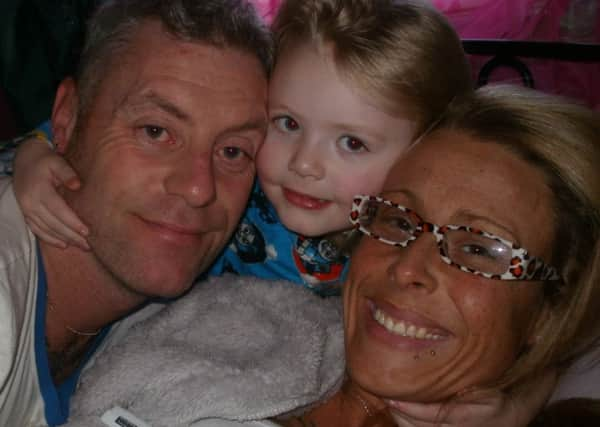Mum turns to Facebook with autism message


Jemma Lord and her husband, Dave, suspected that their beautiful daughter four-year-old Avah might be autistic when she was just 17 months old. Their bright active toddler changed and became withdrawn after picking up a viral infection in 2011, but it was not until June this year that she was referred to an autism specialist, and she has to wait until November before Avah goes before a medical board for a full assessment.
“I don’t want other parents to have to feel the way we have,” said Jemma. “It has been so stressful. It is the sheer love you have for your child that stops you from giving up. As a parent is agonising to watch; it is not nice. It is a silent disability. When people look at her they don’t see it, only her behaviour.”
Advertisement
Hide AdAdvertisement
Hide AdUniversity student Jemma created her Facebook page one evening when she was feeling low after yet another demanding and exhausting day. “I needed to do something positive,” she said, so she called her page “Support Jemma in Raising Much More Awareness for Autism”.
“I thought that if I wrote about what it is like and the experiences I have had it might help other parents with children showing similar traits.
“Like us, they could be waiting for treatment and having to cope alone. It is the feeling that you are just left to manage. People who don’t know about children with autism spectrum disorders look at you as a bad parent, someone with poor parenting skills and not capable of controlling a little child. It is not that simple.
“From what I have found out, many parents in the UK are waiting a substantial time before anything is done for their child. In the US it is a priority before a child is three.
Advertisement
Hide AdAdvertisement
Hide Ad“It is an agonising wait, and all the time we wait we are trying to understand what to do. Negative things happen during the waiting time. We need guidance or strategies so that we can discipline Avah correctly, according to where she is on the spectrum, and children do change as they get older.
“It is very difficult, and it means we don’t often go out, not even to the supermarket, but we should be able to do.”
Jemma and Dave, who live in Dall Street, Burley, have seen changes in Avah as she has grown: she paces up and down, breathes as though she is out of breath, goes round in circles, slaps her hands, talks to herself, is obsessed by going first and closing doors, and is very restricted by routine.
Avah is about to start at St Mary’s Primary School, where she attended nursery sessions. “I asked the nursery teacher to keep a notebook about Avah,” said Jemma. “It backed up what I noticed and had always felt while being dismissed as a melodramatic first-time parent. Avah’s anxiety levels have increased; she does not understand how or why she wants to do things, but she has to do it.
Advertisement
Hide AdAdvertisement
Hide Ad“She is always going to struggle with friendships, I’ve seen it now. She will stand and watch the other children, but she cannot join in. It is heartbreaking.”
Jemma says she does not blame local doctors or specialists for Avah’s lack of treatment, but the lack funding available in this part of the country.
“I’m just hoping the Facebook page will highlight the need for change,” she said. “I don’t expect great changes, but something has to give. My daughter is going to like this for the rest of her life and she needs to be able to express her emotions. I feel that I am failing her, and that the system is failing her.
“And I also want to ask people to stop and think the next time they see a child being difficult, and to say to themselves ‘what must that parent being going through’, but some people will still not care.”